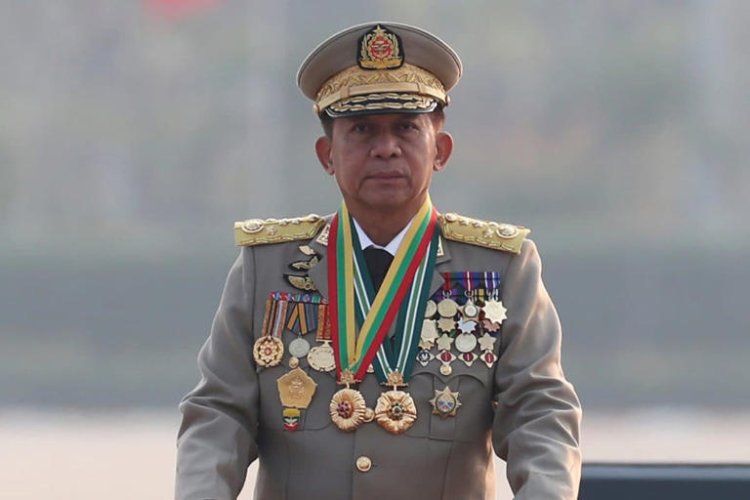Report Reveals Escalating and Daring War Crimes by Myanmar Junta
UN Report: Myanmar Military's Escalating War Crimes Exposed

The latest findings from a UN Human Rights Council body reveal compelling evidence of a disturbing surge in both frequency and audacity of war crimes committed by the Myanmar military and its affiliated militias. The Independent Investigative Mechanism for Myanmar (Mechanism) released its annual report on August 8, shedding light on the alarming nature of these atrocities.
Among the documented war crimes are indiscriminate and disproportionate assaults on civilians through aerial bombardments. A tragic instance of this occurred in April, when a military airstrike in Sagaing resulted in the tragic loss of over 155 lives. Additionally, a distressing pattern emerges with the increased occurrence of mass executions of both civilians and detained combatants. Entire villages have fallen victim to intentional and large-scale arson, reducing homes and buildings to ashes, leaving devastated communities in their wake.
Nicholas Koumjian, Head of the Mechanism, expressed deep concern over the devastation caused by aerial bombings and village burnings. He emphasized that the evidence points to a notable rise in war crimes and crimes against humanity in Myanmar, illustrating systematic and widespread attacks against innocent civilians. The Mechanism is diligently compiling case files that could hold individual perpetrators accountable through legal proceedings.
The report underscores that the Myanmar military has attempted to justify aerial bombings, even on locations such as schools and monasteries, by labeling them as strikes against military targets. However, the Mechanism's thorough investigation suggests that the military was aware of, or should have been aware of, the presence of a significant number of civilians in proximity to the alleged military targets during some of these attacks.
Addressing the responsibility of military commanders under international law, the report highlights their duty to prevent and penalize war crimes committed by those under their command. Neglecting to take appropriate measures for prevention and punishment can render commanders criminally liable. The Mechanism further notes that a consistent disregard for such crimes may indicate a deliberate intention by higher authorities to facilitate the commission of these offenses.
The Mechanism's rigorous investigation into the gravest international crimes committed in Myanmar involved extensive data collection from over 700 sources. These sources encompassed more than 200 eyewitness testimonies, supplemented by a wealth of additional evidence including photographs, videos, audio recordings, documents, maps, geospatial imagery, social media posts, and forensic materials.
While actively probing the violence that led to the large-scale displacement of the Rohingya population from Myanmar in 2016 and 2017, the UN rights body places particular emphasis on the prevalence of sexual and gender-based crimes during this period. Koumjian emphasized the severity of such crimes and their pervasive nature during the Rohingya clearance operations, noting the wealth of pertinent evidence obtained from witnesses.

 chandni
chandni 



